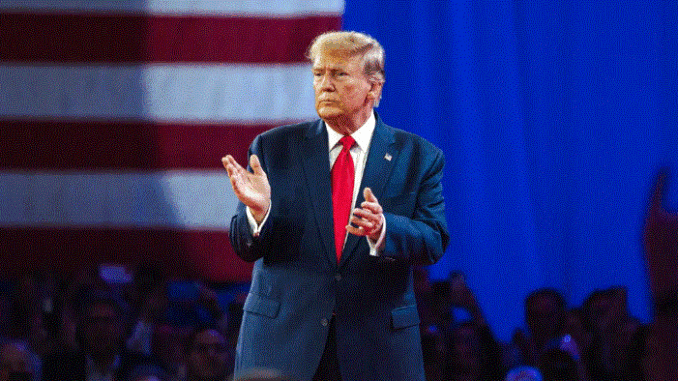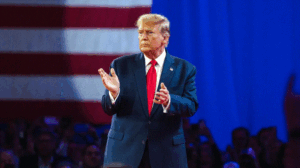
Explained: Why Christians voted for Donald Trump
According to Heather Tomlinson, “our American brothers and sisters had good reasons for backing Trump, even
though we may disagree with their decision.” We ought to try to comprehend them.
According to preliminary polling data from the US presidential election, Donald Trump’s victory was greatly aided by
the Christian vote.
It revealed that 61% of white Catholics and 72% of white Protestants supported Mr. Trump’s return to the White
House.
 Additionally, over 80% of Americans who identify as evangelicals did so, rising from both 2016 and 2020.
Additionally, over 80% of Americans who identify as evangelicals did so, rising from both 2016 and 2020.
Trump’s victory in the pivotal rust belt swing states of Michigan, Pennsylvania, and Wisconsin was sealed by the
level of support, according to Ryan Burge, a former pastor and associate professor of political science at Eastern
Illinois University.
He told Religion News Service (RNS) that “it’s hard to overcome the white God gap in those places.”
According to data from the Public Religion Research Institute (PRRI), white Christians continue to make up the
largest religious group in the nation, accounting for over 42% of the population.
The Christian vote, which included Asians, Hispanics, and African Americans, went to Mr. Trump as well. The exit
polls showed that 63% of Protestants and 58% of Catholics supported him.
If those figures continue to rise, it will be a notable increase from 2020, when 50% of Catholics backed Mr. Trump.
Just over half of Hispanic Catholic voters (53%) and almost two-thirds of Hispanic Protestant voters (64%)
supported the former president. Only one-third of Hispanic Catholics supported him in the 2020 election.
Robert Jones, president of PRRI, stated that additional data is required to fully comprehend the Hispanic vote in this
week’s outcome, but he hypothesises that economics, not religion, had a significant part in the rise in Hispanic
support for Mr. Trump.
“Over the last four years, they don’t feel like their situation has improved,” he stated.
The Trump team was able to convey two different messages, Mr. Jones told RNS.
White Christians were drawn to the first because it focused on severe immigration and crime policies, while Hispanic
Christians were drawn to the second because it focused on the economics.
Mr. Burge believes the conclusion may have also been influenced by the more conservative views of Hispanic
Protestants and Catholics on social issues like LGBT rights and abortion.
“That’s a hard message for a moderate Hispanic voter,” he says, implying that the Harris campaign’s hegemonic
stance on abortion rights may have backfired with Hispanic Christians.
“All they are thinking is that petrol is expensive, bread is expensive and milk is expensive,” the professor of political
science told RNS. Let’s attempt something different. That’s the tale.
“White and Hispanic Christians may also be concerned about the changing nature of America and the decline of
religion’s power in the culture,” according to a theory put out by Religion News Service.
It stated that “many Americans do see Christianity as important — or feel a nostalgia for God and country patriotism
— rather than a culture where secular values dominate,” even though few of them support the country’s official
Christian status.
According to Samuel Perry, a sociologist at the University of Oklahoma who focusses on Christian nationalism and
other religious movements, the expansion of Pentecostal and non-denominational churches might have been
another important contributing element.
These churches are frequently multiethnic, with Christians of colour joining predominantly white, frequently
Republican churches. That may influence how they vote,” he said.
“Their allegiance is not to their ethnic group, which tends to vote Democrat. It’s going to be more of a multi-ethnic
conservative, white-dominated Christianity that unequivocally votes Republican.”
This week’s election, as noted by Robert Jones of PRRI, demonstrates the polarised nature of American religion and
the strong loyalty of white Christians to the Republican Party.
He emphasised that the Democratic Party has been favoured by the majority of American faith groups, including
Jews, Muslims, Black Protestants, nonreligious Americans, and, up until this week, Hispanic Catholics.
Conversely, white Christians continued to identify with Republicans. Mr. Jones claimed, “They haven’t moved a
centimetre.”
Read more news on https://sportupdates.co.uk/

Leave a Reply